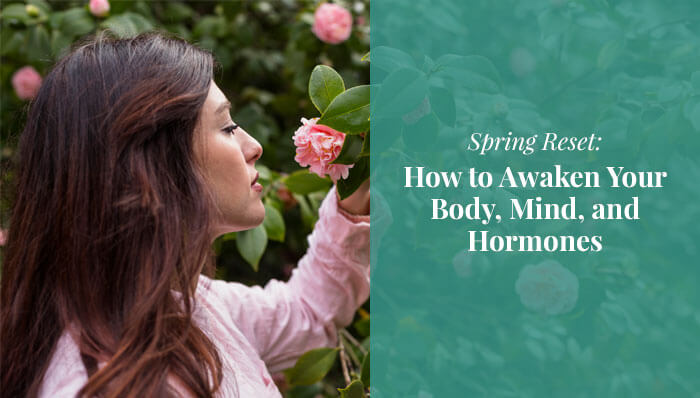What do you usually do to elevate your mood? Do you go for a long walk, get sweaty during a tough workout, or write down your emotions in your journal? Keeping healthy habits is a powerful way to manage your emotions – and one of the healthiest habits you can keep is practicing gratitude. Gratitude is an often overlooked but important part of self-care. The best part is, gratitude is easily accessible and the benefits are powerful.
Practicing gratitude during hard times is probably not what you think. It isn’t about saying, “life could be worse.” It’s also not toxic positivity. In 1963, philosopher Peter A. Bertocci and educational accreditation chief Richard M. Millard defined gratitude as “the willingness to recognize the unearned increments of value in one’s experience.”
Gratitude is a way to strengthen your mind and emotions. This can be helpful when life is challenging – and it’s supported by science.
The Benefits of Practicing Gratitude
For decades, researchers have been exploring the connection between well-being and practicing gratitude and the benefits are impressive.
- Improves relationships: Being grateful enables us to improve our existing relationships and accept new relationships into our lives. It also makes our intimate relationships stronger.
- Stress and social support: In 2008, research from the American Psychological Association stated, “gratitude seems to directly foster social support, and to protect people from stress.”
- Sleep benefits: Professor of Psychology Robert Emmons and experimental psychologist Michael McCullough discovered that gratitude journaling helped people sleep better – a cornerstone of maintaining good mental health.
- Physical benefits: People who practice gratitude are more aware of their bodies and more likely to create healthy lifestyle habits.
- Reduces negative emotions: Gratitude increases feelings of joy and serenity and helps you cut back on negative emotions. It also improves self-esteem and resiliency.
Practicing gratitude allows us to shift our mindsets daily to improve our lives for the better in a few minutes per day. When hard times arrive, that’s when a gratitude practice really pays off. Here are some of my favorite ways to practice gratitude daily.
Keep a Gratitude Journal
What I love about gratitude journaling is that it can be as simple or complex as you want. Writing down three things you are grateful for daily is an easy way to cultivate your gratitude practice. What you write down doesn’t have to be a momentous occasion or a success you achieved (but it can be!). It can be something as simple as appreciating a beautiful sunset or spending time with your dog. When you keep this habit consistently, you’ll notice your emotions, mindset, and well-being begin to shift to a more positive state.
Cultivate a Growth Mindset
Have you ever felt stuck in a rut? You take the same actions repeatedly – and despite wanting different results, you get frustrated that you aren’t doing something different. The best of us get stuck in a rut sometimes, and cultivating a growth mindset could be the remedy to get out of it.
In the Harvard Business Review, psychologist Carol Dweck wrote: “Individuals who believe their talents can be developed (through hard work, good strategies, and input from others) have a growth mindset. They tend to achieve more than those with a more fixed mindset (those who believe their talents are innate gifts).”
Dedicating yourself to developing new skills and knowledge can increase your feelings of gratefulness. Staying in one place means you aren’t making progress – and that leads to frustration.
Acknowledge Hard Times
We all go through challenging times in life, and a daily gratitude practice helps your brain train for even the toughest moments. Going through a crisis can make us appreciate what we have or had in the past. When we practice gratitude regularly, it can be easier to process and manage negative emotions when they occur.
A common misconception about gratitude is that it is “toxic positivity.” University of Washington Medicine defines toxic positivity as “dismissing negative emotions and responding to distress with false reassurances rather than empathy.” On the contrary, people who regularly practice gratitude are more likely to be more empathetic and compassionate to others. When you practice gratitude, it opens your awareness of the world around you.
Serve Others
Contributing to a greater cause is one of the best ways to increase feelings of well-being – especially when you feel helpless about something in your life or in the news. There is always someone out there who needs help. Volunteering with a cause that you care about provides social interaction, provides an avenue for feelings of anxiety, stress, and helplessness, and most importantly, serves a purpose greater than yourself. There are many ways to get involved. Choose a cause that aligns with your personal values and offer one of your skills or talents. Even a few hours per month can have a transformative effect.
One Last Thing About Gratitude During Hard Times
When you are going through a difficult time, know that it is okay. It is unhealthy to block hard emotions. If you feel sad, confused, scared, angry, or something else, these feelings are important to acknowledge. Practicing gratitude will help you recognize these emotions when they occur and allow you to increase your self-awareness and take action in a positive way.
Share this article with your friends and spread the word to promote natural beauty!


